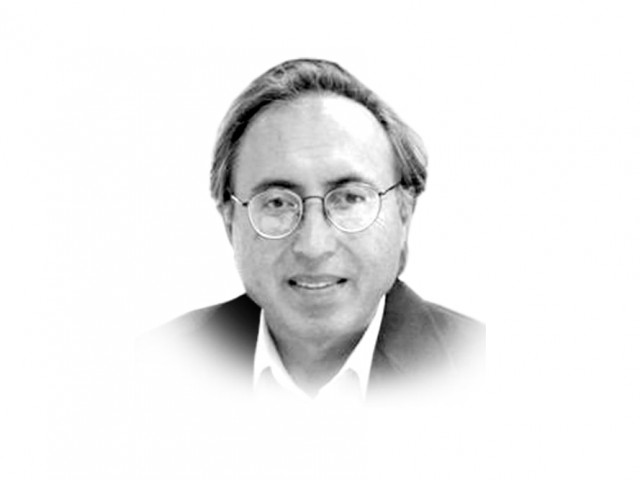Packaging modernism
Muslim societies duelling between the modern world and Islam will remain the battleground of ideas for decades yet.

As suicide bombers and radical Islamists, sponsoring and supporting terrorism, justify their horrible acts in the name of Islam, this violent form of fascism needs to be countered not only through the secular rational argument of humanism but also primarily by understanding that suicide bombing and terrorist acts are repugnant to Islamic laws, theocratic spirit and classical understanding of the ideology of jihad.
Muslim societies duelling between the modern world and traditional interpretation of Islam will remain the battleground of ideas for decades to come. And who wins the battle of ideas will determine the future course of peace and stability in Muslim societies. The primary questions and ideas that we need to debate for reviving Pakistan must centre on modern education, universal literacy, distributive justice, positive social change, and above all the construction of a liberal political order.
One thing that Muslim societies must do is avoid the trap of considering economic growth and political modernisation as separate and independent human spheres. Rather, in each given historical context, they must be programmed through public policy and political institutions to reinforce each other. Many Muslims countries have for too long promoted economic modernism through capitalist ideas while suppressing political rights and social freedoms. Over the debris of military regimes espousing this approach, we have painfully found this has not worked in Pakistan and it will never do so in future.
The question of an individual’s identity and self-expression, particularly that of Muslim women and the empowerment of younger generations, are perhaps more important than the issue of economic growth and accumulation of wealth. In my view there is no conflict in pursuing both these objectives.
Economic growth is necessary to effect change in society but can be counter-productive to stability, order and peace if it raises questions about fair distribution of rewards. Growth that enriches and strengthens the old ruling classes only further breeds contempt for political authority. These factors have influenced the minds of the Taliban who come from the poorest, disenfranchised sections of society. In my view, it can be only through the empowerment of the Muslim person that we can restore his or her trust in the modern nation state and its political order.
The ruling classes that dominate the political system and use economic and political resources for personal and class interests have to answer for why younger sections of these societies are embracing the fold of radical Islam.
Published in The Express Tribune, September 27th, 2010.















COMMENTS
Comments are moderated and generally will be posted if they are on-topic and not abusive.
For more information, please see our Comments FAQ